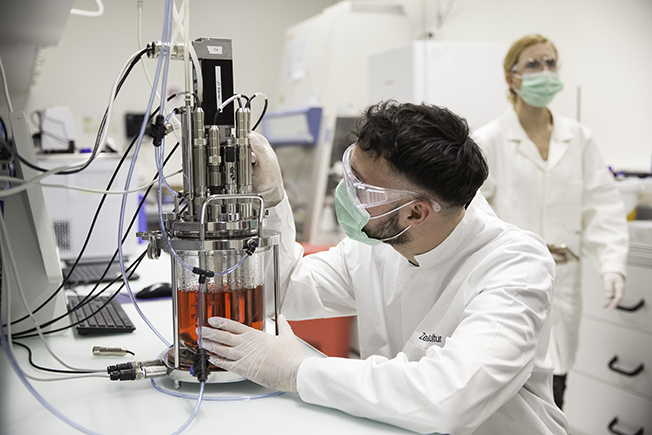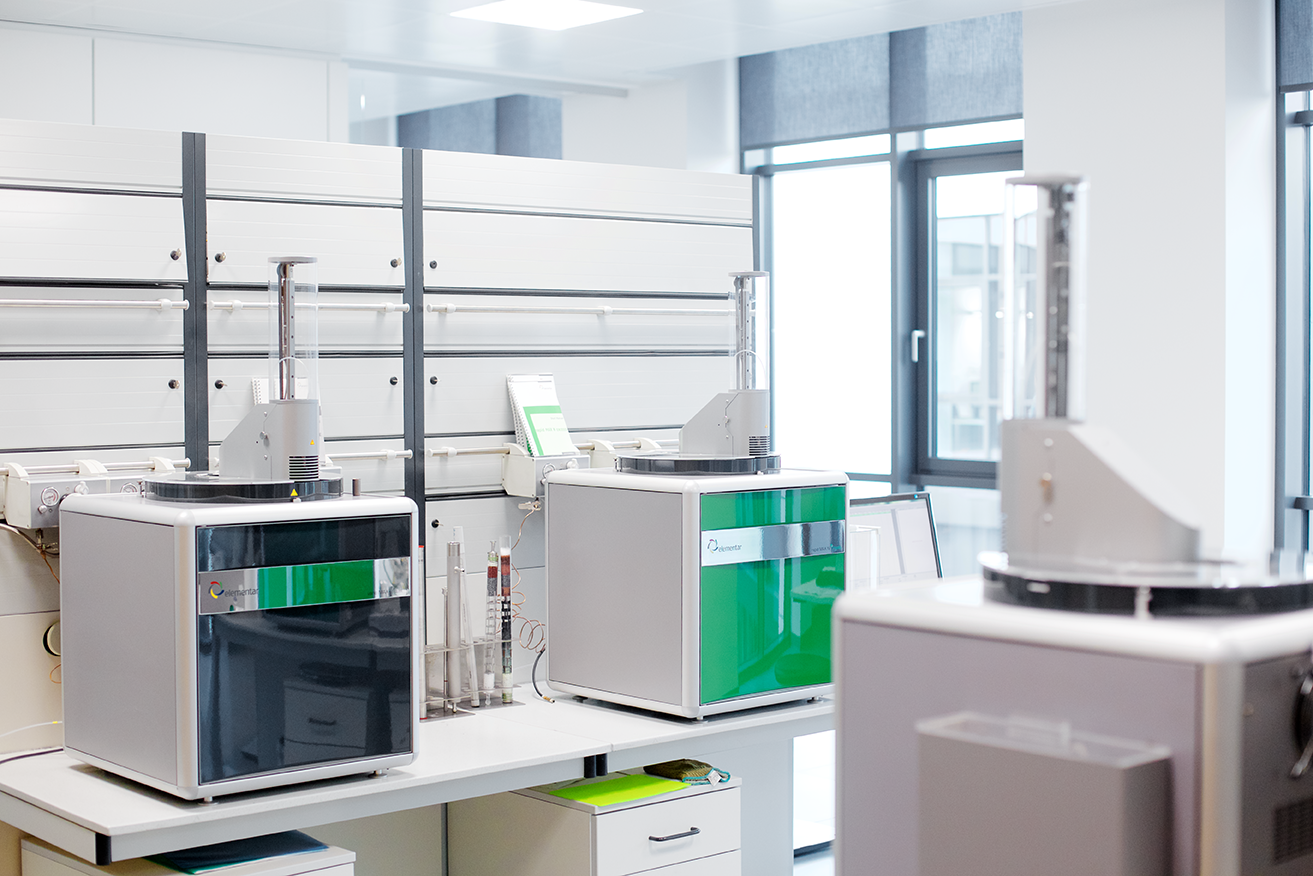

Feed the world
ENOUGH is developing high-scale sustainable protein production using fungi and fermentation, widely recognized as being the most effective solution to feed a growing population

One of the highest-rated and most-watched presentations from February 2023’s Future of Protein Production Summit was given by John Gray, Managing Director of ENOUGH, producer of the ABUNDA mycoprotein. Having spent a lifetime working in food – 25 years of which was in the meat industry – Gray now finds himself working for a leading food-tech company that is successfully developing and scaling sustainable food ingredients for the future.
“Looking at agriculture, it’s known to account for 15% of carbon emissions, so one in every six tons emitted,” says Gray. “That’s why I’m delighted to be working in a company and in an industry that is leading one of the biggest transformations in consumer eating habits that mankind has ever seen.”
As a sustainable food ingredient company, ENOUGH (formerly 3F BIO), founded in Glasgow, has set its sights extremely high. In 2022, it completed construction of a 15,000m2 (160,000ft2) facility that is co-located alongside the Cargill facility in Sas van Gent in the Netherlands.
The new facility was one of 11 flagship projects to have support from the circular Bio-based Industries Joint Undertaking (BBI JU). The new ENOUGH facility in Sas van Gent received €16.9 million funding as part of the BBI JU via the PLENTITUDE project. In addition to this, in June 2021, ENOUGH also closed a financing round of €42 million in Series B funding.
.jpg)
Strategic maneuvers
Being sited next to Cargill was not luck but judgement. The location and collaboration with Cargill ensures the most efficient feed source, as well as supporting zero-waste advantages of ENOUGH’s ABUNDA product. The facility has an initial capacity of 10,000 tons a year.
“Our ambition at this site is to produce more than 60,000 tons of high-quality food protein annually, commencing with 10,000 tons in 2023,” Gray explains. “But we have a vision to produce a cumulative one million tons of ABUNDA by 2032.” That’s the equivalent of replacing five million cows, more than one billion chickens or reducing more than six million tonnes of CO2 emissions, akin to planting +30 million trees.
There are more ENOUGH facilities in the pipeline to achieve those upper ambitions. “We expect that this will be the first of many similar-scale facilities operated by ENOUGH around the world,” reports Gray. “ABUNDA has approval in 33 countries, including the EU and the USA. So, our capability to commercialize to scale is a lot easier than for many new alternative protein product solutions.”
.jpg)
Creating ABUNDA involves fermenting fungi using renewable feed-stocks, such as wheat and corn, in a process that’s so efficient that you get more protein out than is present in the grain that is put in. This means consumers can enjoy all the protein and ‘meatiness’ of meat from a source that uses 97% less feed, 93% less water and 97% lower CO₂ emissions than beef and has a fraction of its environmental impact.
Plant-based proteins, cultivated meat and fermentation all have the potential to mitigate the environmental impacts of our food systems, decrease the risk of zoonotic disease, and ultimately feed more people with fewer resources. But as a way of growing protein to meet the needs of an expanding global population, fermentation has attracted most interest. “Within alternative proteins, fermentation – microbial, whole-biomass and precision fermentation – is recognized as having the greatest potential to make an impact at scale,” says Gray. “In fact, the World Economic Forum cites it as an opportunity to fundamentally change the way the world eats and improve global human and environmental health. For me, that’s a huge endorsement.”

This transformation of the food system is an absolute necessity, believes Gray. “Current global protein consumption is around 600 million tons per year – and it’s growing.” The future increased demand for proteins can be attributed to a number of factors but is largely down to the predicted increasing population. We currently have just under 7.9 billion people on the planet but by 2050, that will be between 9.8 billion and 10 billion.
If we can’t effectively feed the global population of 2023, how are we going to feed the additional two billion who will share this planet with us in 27 years’ time?
An additional two billion inhabitants – a net increase of 25%. “The real kicker is that of the 7.9 billion inhabitants on the planet today, currently 828 million people go hungry on a daily basis,” says Gray. “If we can’t effectively feed the global population of 2023, how are we going to feed the additional two billion who will share this planet with us in 27 years’ time? There is a tipping point for change in the proteins that we eat, and we’re lagging behind it.”
Filling the protein gap

The time to act is now if we are to provide universally accessible, affordable, healthy and sustainable proteins. Can fermentation-derived proteins fill the gap? Given his previous career roles, when Gray suggests “the meat industry does not have the potential to meet prevailing and future requirements”, he speaks with insider knowledge.
As a source of protein, though, animal-based production systems can of course be further optimized. And the meat industry will still remain as the main source of protein for the foreseeable future, but it’s not the long-term solution. Cultivated meats are not yet a viable alternative to conventional proteins. Plant-based proteins, meanwhile, are established and will continue to grow as a category, reflected in demand levels of up to 30 million tons globally by 2030. Fermented proteins, though, have been around for almost 40 years. Developments from the past year would suggest they can step up. Scientific advances, new products and prototypes, manufacturing facilities, and partnerships brought the world more meat, seafood, eggs, and dairy made via the technology. Fermentation companies also raised US$842 million in 2022, according to a GFI report on the market, 37% of which was raised in Europe.

ENOUGH will continue to work alongside customers to enable them to create some amazing meat and fish alternatives in a variety of platforms.
Nutritionally, ABUNDA has a lot to offer. It’s a complete protein boasting all nine essential amino acids. It’s also rich in fiber and zinc, and low in saturated fat. “Consumers can enjoy their favorite dishes without any compromise. And if that wasn’t enough, it lowers cholesterol.”
Ultimately, consumers want plant-based options that do not compromise on taste and texture. They crave the same experience as they had with animal meat, yet without feeling any guilt about its impact on their health or on the planet. However, consumers can at the same time be very slow to change attitudes and habits, especially when it comes to food.
Ultimately, the world needs more protein and fermentation helps deliver a complete protein that improves both human health and the health of our planet. “This isn’t rocket science,” says Gray. “It’s a process that’s easily scalable, and produces protein at a price that is equal to or below that of meat-based proteins.”
For further information about ENOUGH, please click here
If you have any questions or would like to get in touch with us, please email info@futureofproteinproduction.com


%20ILVO%202.jpg)

.png)

